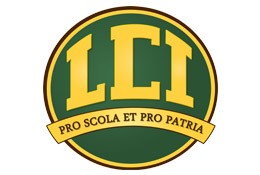Introduction:
Automobiles are an important part of our society. For most people, an automobile is the second biggest investment they make in their lives. For some people, the automobile is an expression of who they are.
At LCI there is an excellent opportunity to learn about cars, trucks, and much more. This class is not just for students that might want to enter the mechanic trade. The classes are for individuals who want to know what makes their car go down the road. It will also appeal to students that might want to work on their own car as a hobby in future years. In addition, students that want to enter professions such as engineering may be enlightened by the courses.
Automobiles have changed dramatically in the last 20 years. Computers now operate most of the systems in modern vehicles. This has made even the simple mechanical systems much more complex. The individual that repairs a modern day car must be dedicated to working through problems, be skilled and knowledgeable about electronic, and have mechanical aptitude.
The classes will provide an introduction that students can build on.
Transportation Power and Energy 9 (non credit course)
This quarter semester exploratory course provides students with an opportunity to experience working in an automotive shop. Students will have the opportunity to learn about safety, hand tools, automobile types, basic servicing procedures, and perform a small automotive-based project.
Grade 10 – Introductory Level (credits earned vary)
Grade 10 has six modules. Each module is one credit. Therefore, a student that completes all six modules will earn six CTS credits toward their diploma.
The introductory level covers items such as safety, tools, preventative maintenance, operating principles of the internal combustion engine, engine parts, electrical components, brakes, and tires.
The class has a mix of classroom theory and hands on activities in the shop. It expected students provide their own coveralls and appropriate footwear as this is a hands on course and they will be working with materials that will get them dirty.
Grade 11- Intermediate Level (prerequisite is grade 10 mechanics, credits earned vary)
Students that want to enter the intermediate level of mechanics must have completed six modules in the grade 10 level. The grade 11 (intermediate level) also consists of six modules that are each worth one credit.
This level explores more in depth automotive areas. Topics covered in the intermediate level include brakes, steering, suspension, differentials, driveline components, clutch, and engine support systems.
There is a balance of classroom activities and practical assignments in the shop.
Grade 12 – Advanced Level (prerequisite is grade 11 mechanics, credits earned vary)
Students that want to enter the advanced level must have completed six credits at the intermediate level. The grade 12 (advanced level) also consists of six modules that are each worth one credit.
Students in grade 12 will study and work on engine diagnosis, tune up, computer management systems, electrical systems, and automatic transmissions.
At this level, students will be using many diagnostic tools like scanners and scopes. They should now be very comfortable working in a shop environment. They should be able to transfer the theory from all three levels to diagnose problems, troubleshoot and repair various components.

